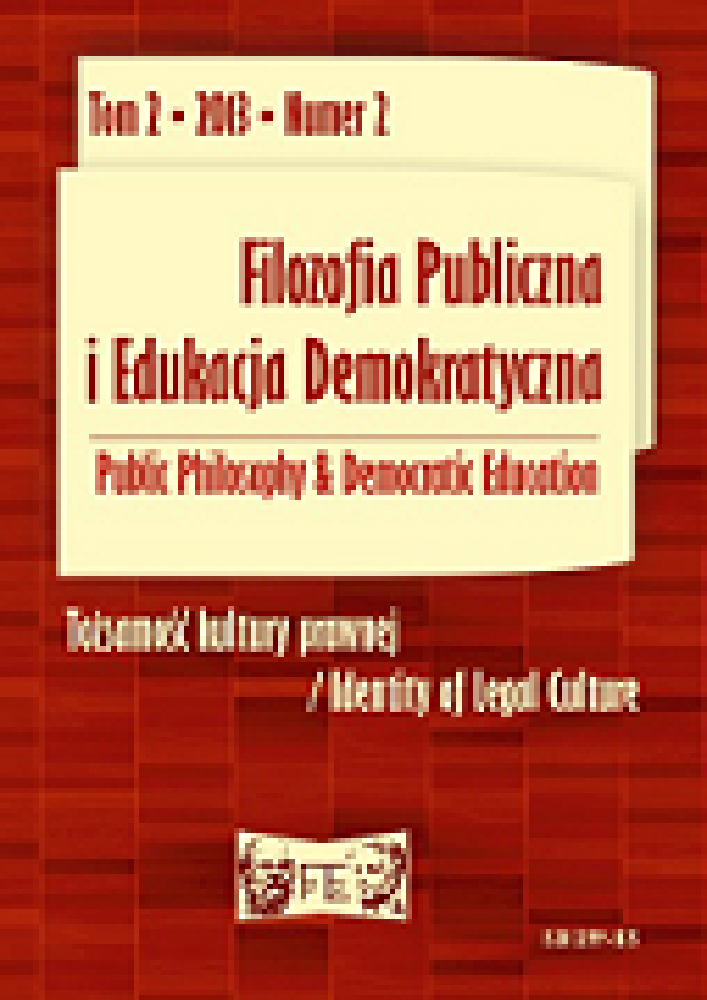Abstrakt
proving university students’ research skills, research integrity and best standards for scientific excellence is crucial for all disciplines. Marina Klimenko, a senior lecturer at the University of Florida, developed an innovative digital textbook entitled Research Methods in the Social Sciences (2020) with the focus on investigative psychology. The edition was powered by the e-learning portal and published by Sentia Publishing. The author’s own epistemological and research expertise is combined here with her competence in higher education didactics. Klimenko’s textbook seems to be perfectly tailored for prospective researchers – and useful for various disciplines representing the social sciences and humanities.
Bibliografia
Adler Ch., Van Doren M., How to Read a Book, New York 1967.
Arango-Muñoz S., “Two Levels of Meta-cognition”, Philosophia 2011, vol. 39(1), pp. 71–82.
Carruthers P., Boucher J. (eds), Language and Thought: Interdisciplinary Themes, Cambridge University Press, New York 1998.
Darbellay F., “From Disciplinarity to Postdisciplinarity: Tourism Studies Dedisciplined”, Tourism Analysis 2016, vol. 21, pp. 363–372.
Fleck L., Genesis and Development of a Scientific Fact, The University of Chicago Press, Chicago 1979.
Janz B., Kaznina E., Jihyun K., Ammann C., Kohlberg D., Mamali C., “COVID-19 Forced Social Distancing and Isolation: A Multi-perspective Experience”, Ethics in Progress 2020, vol. 11(1), pp. 20–60 (https://doi.org/10.14746/eip.2020.1.2 ).
Kiesewetter H., “Ethical Foundations of Popper’s Philosophy”, in: A. O’Hear (Ed.), Karl Popper: Philosophy and Problems, Royal Institute of Philosophy Supplement, vol. 39, Cambridge University Press, Cambridge 1995, pp. 275–276.
Seifert K., Sutton R., Educational Psychology, Global Text Project, Zurich 2009.
Siegel H., “The Rationality of Science, Critical Thinking, and Science Education”, Synthese 1989, vol. 80, pp. 9–41.
Silva da Leite P., Torquato Schimidt D.A., „Rethinking Digital Games in a Critical and Participatory Perspectives:
A Brief Reflection“, Ethics in Progress 2019, vol. 10, no. 2, Art. #10, pp. 112–117 (https://doi.org/10.14746/eip.2019.2.10 ).
Songkram N., Khlaisang J., Puthaseranee B., Likhitdamrongkiat M., “E-learning System to Enhance Cognitive Skills for Learners in Higher Education”, Procedia – Social and Behavioral Sciences 2014, vol. 174, pp. 667–673.
Spielman R., Dumper K., Jenkins W., Psychology, OpenStax, Houston 2014.
Stover J., “There Is No Case for the Humanities”, 2018 [https://www.chronicle.com/article/There-Is-No-Case-for-the/242724, accessed: 7.12.2020].
Yan Z., Hao H., Hobbs L.J., Wen N., “The Psychology of E-learning”, Journal of Educational Computing Research 2003, vol. 29(3), pp. 285–296.
Ziemke T., Riegler A., “When Is a Cognitive System Embodied?”, Cognitive Systems Research 2002, vol. 3(3), pp. 339–348.
Licencja
Prawa autorskie (c) Autorzy zachowują prawa autorskie i prawa do publikacji swoich artykułów w tym czasopiśmie, przyznając czasopismu prawo do ich rozpowszechniania na warunkach CC BY-NC-ND 4.0

